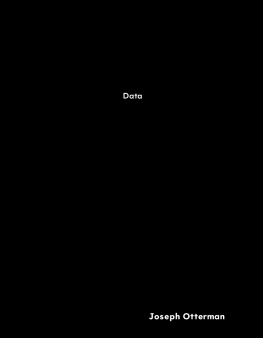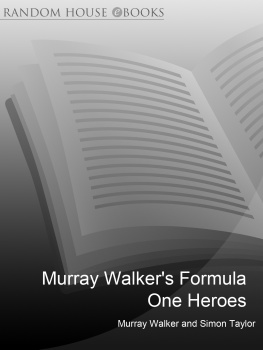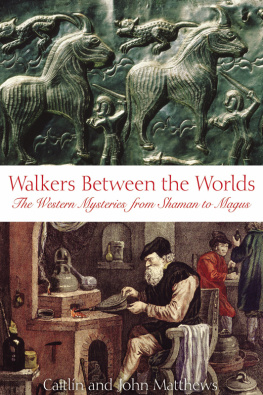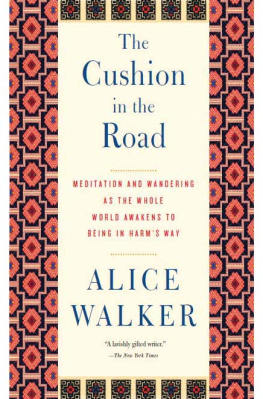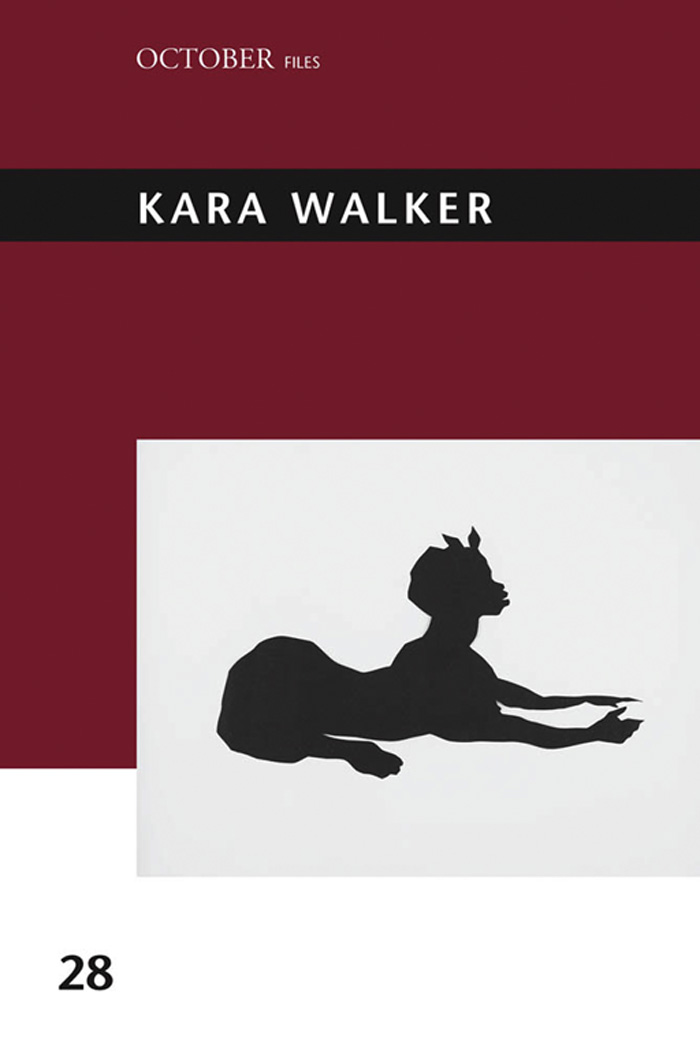
Kara Walker
OCTOBER Files
Rosalind Krauss (founding editor), Annette Michelson (founding editor, 19222018), George Baker, Yve-Alain Bois, Benjamin H. D. Buchloh, Huey Copeland, Leah Dickerman, Devin Fore, Hal Foster, Denis Hollier, David Joselit, Carrie Lambert-Beatty, Pamela M. Lee, Mignon Nixon, and Malcolm Turvey, editors
Richard Serra, edited by Hal Foster with Gordon Hughes
Andy Warhol, edited by Annette Michelson
Eva Hesse, edited by Mignon Nixon
Robert Rauschenberg, edited by Branden W. Joseph
James Coleman, edited by George Baker
Cindy Sherman, edited by Johanna Burton
Roy Lichtenstein, edited by Graham Bader
Gabriel Orozco, edited by Yve-Alain Bois
Gerhardt Richter, edited by Benjamin H. D. Buchloh
Richard Hamilton, edited by Hal Foster with Alex Bacon
Dan Graham, edited by Alex Kitnick
John Cage, edited by Julia Robinson
Claes Oldenburg, edited by Nadja Rottner
Louise Lawler, edited by Helen Molesworth with Taylor Walsh
Robert Morris, edited by Julia Bryan-Wilson
John Knight, edited by Andr Rottmann
Isa Genzken, edited by Lisa Lee
Hans Haacke, edited by Rachel Churner
Michael Asher, edited by Jennifer King
Mary Kelly, edited by Mignon Nixon
William Kentridge, edited by Rosalind Krauss
Bruce Nauman, edited by Taylor Walsh
Sherrie Levine, edited by Howard Singermann
Michael Snow, edited by Annette Michelson and Kenneth White
Carrie Mae Weems, edited by Sarah Elizabeth Lewis with Christine Garnier
Donald Judd, edited by Annie Ochmanek and Alex Kitnick
Hollis Frampton, edited by Michael Zryd
Kara Walker, edited by Vanina Gr
Kara Walker
Edited by Vanina Gr
essays and interviews by Jerry Saltz, Hamza Walker, Thelma Golden, Anne M. Wagner, Yasmil Raymond, Lorraine Morales Cox, Tavia Nyongo, Vanina Gr, and Zadie Smith
OCTOBER Files 28
The MIT Press
Cambridge, Massachusetts
London, England
2022 Massachusetts Institute of Technology
All rights reserved. No part of this book may be reproduced in any form by any electronic or mechanical means (including photocopying, recording, or information storage and retrieval) without permission in writing from the publisher.
This book was set in Bembo Std by New Best-set Typesetters Ltd.
Library of Congress Cataloging-in-Publication Data is available.
ISBN: 978-0-262-54447-4
10 9 8 7 6 5 4 3 2 1
d_r0
Contents
Series Preface
OCTOBER Files addresses individual bodies of work of the postwar period that meet two criteria: they have altered our understanding of art in significant ways, and they have prompted a critical literature that is serious, sophisticated, and sustained. Each book thus traces not only the development of an important oeuvre but also the construction of the critical discourse inspired by it. This discourse is theoretical by its very nature, which is not to say that it imposes theory abstractly or arbitrarily. Rather, it draws specific ways in which significant art is theoretical in its own right, on its own terms, and with its own implications. To this end we feature essays, many first published in OCTOBER magazine, that elaborate different methods of criticism in order to elucidate different aspects of the art in question. The essays are often in dialogue with one another as they do so, but they are also sensitive as the art to political context and historical change. These files, then, are intended as primers in signal practices of art and criticism alike, and they are offered in resistance to the amnesiac and antitheoretical tendencies of our time.
The Editors of OCTOBER
Acknowledgments
This volume would not be possible without the support and generosity of Kara Walker and Sikkema Jenkins & Co.
I most sincerely thank Huey G. Copeland for inviting me to edit this OCTOBER Files issue, and for his support throughout this project. I also warmly thank the OCTOBER editors for their trust. Thanks go to Adam Lehner, managing director at OCTOBER magazine, as well as Gabriela Bueno Gibbs, assistant acquisitions editor at the MIT Press.
I would like to express my heartfelt gratitude to the contributors of this volume, for their strong, sophisticated intellectual engagement with Walkers work, of course, but also for their warm response to this project and their spirit of collaboration as this volume moved from proposal to completion. It has been an honor to be in dialogue with such impressive artworld professionals, scholars, and writers.
My gratitude goes to Monica Truong and Scott Briscoe at Sikkema Jenkins gallery, whose diligence and competence have been invaluable for this project and so many others regarding Walkers work.
Throughout the time span of this project, I have been blessed with the help of my colleagues at the Villa Arson School of Fine Arts (Nice, France): Cline Chazalviel, editorial coordinator; Christophe Robert, head librarian; and Jean-Louis Paquelin, teacher and computer services technician. I also thank my former colleague and dear friend Frdric Wecker, professor of aesthetics and philosophy at the National School of Art and Design (Nancy, France), for his kind assistance in the final stage of the project. I thank Christine Camara, librarian at the National Institute of Art History (INHA). I cannot stress enough the importance of professionals such as them in public institutions, which they uphold through their complete dedication to their work.
I also thank the wonderful women of the public daycare system, who made it work whenever possible for the children and their families, despite the circumstances of the COVID-19 pandemic and the acceleration of the relentless assault on public service that has characterized recent French politics. Without these women, and without the help of family and friends, I would not have been able to edit this volume at all. Special thanks go to my partner, Henri-Christophe Audig.
Of course, no mere words can adequately reflect the gratitude that goes to Kara Walker, as one of the most influential artists of the twentieth and early twenty-first centuries, for the courage, aesthetic intelligence, political relevance, and generosity of her artwork. It is a deep honor to count among the numerous students, scholars, educators, and intellectuals who have worked overtime gathering her many citations and references for use in their dissertations, as a modest tribute to her rich, complex, powerful art.
Last but not least, my gratitude goes to the presses for granting republication of the catalog essays, scholarly articles, interviews, and other texts included in this book, and for their help in collecting the texts. I specifically thank Rebecca McNamara, Brynnae Newman, Alanna Nissen, and Kayla Nordlund.
Jerry Saltzs interview, Kara Walker: Ill-Will and Desire, originally appeared in Flash Art (NovemberDecember 1996): 8286, and here appears with the permission of Flash Art. Hamza Walkers essay, Cut It Out, was first published in the January newsletter of the Renaissance Society at the University of Chicago, as an introduction to Kara Walkers solo exhibition at the Society in 1997. The newsletter was republished as an edited article titled, Nigger Lover or Will They Be Black People in Utopia?, in Parkett, no. 59 (2000): 152158. The 1997 newsletter version was later reproduced in its original form (without images) in
Next page




